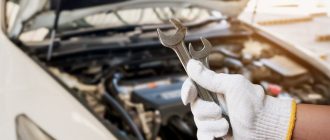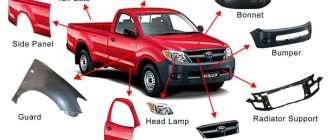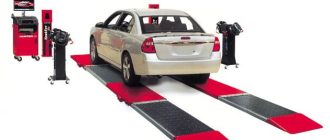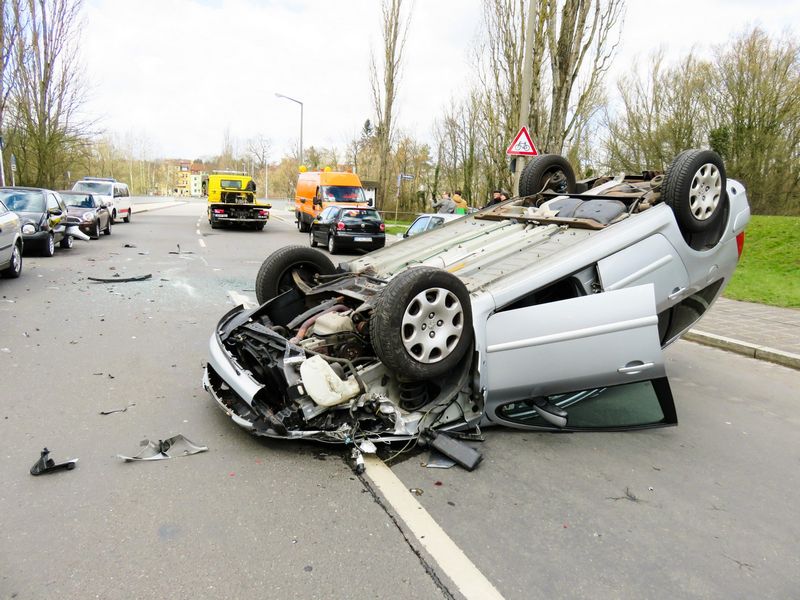
Understanding when a car is considered totaled and what to do next
When a car is involved in an accident, it can sometimes suffer so much damage that it is considered to be “totaled.” But what exactly does this mean? In simple terms, a car is considered totaled when the cost of repairing it exceeds its total cash value. This happens when the damage to the vehicle is severe enough that repairing it would be more expensive than the actual worth of the car.
When a car is deemed to be totaled, it can leave the owner wondering what to do next. The first step is typically contacting the insurance company to report the accident and start the claims process. The insurance company will then assess the damage and determine the actual cash value of the car at the time of the accident. This value is usually based on factors such as the car’s age, mileage, condition, and market value.
Once the insurance company determines the actual cash value of the car, they will subtract the deductible from the total amount. The owner will then receive a settlement check for the remaining amount, which represents the value of the car minus the deductible. At this point, the car is usually taken by the insurance company and sold to a salvage yard, where it will be dismantled for parts or sold as a whole to be rebuilt. Alternatively, the owner may choose to keep the car and have it repaired, but this can be a costly and time-consuming process.
When is a Car Considered Totaled
A car is considered totaled when the cost of repairing it exceeds its actual cash value. This typically occurs when the car has sustained significant damage, such as from a major accident or natural disaster. In such cases, the insurance company determines that the cost to repair the vehicle is uneconomical and declares it a total loss.
When a car is totaled, the policyholder usually has several options. They can choose to accept the insurance company’s payout for the actual cash value of the car and hand over the vehicle to the company. Alternatively, they may be allowed to keep the car and receive a reduced payout based on the salvage value of the vehicle.
If the policyholder decides to keep the totaled car, they will need to obtain a salvage title. This title indicates that the car has been damaged and declared a total loss. It is important to note that a car with a salvage title may have limitations on its use, such as restrictions on obtaining insurance coverage or limitations on where it can be driven.
After a car is deemed totaled, the insurance company may take possession of the vehicle and sell it to a salvage yard. The salvage yard can then sell individual parts or attempt to rebuild the car for resale. Some buyers may be interested in purchasing a totaled car for its salvageable parts or as a project vehicle to rebuild.
In summary, a car is considered totaled when the cost of repairs exceeds its value, and the insurance company declares it a total loss. The policyholder can choose to accept a payout and surrender the car or keep the vehicle and receive a reduced payout. If the car is kept, the policyholder will likely need to obtain a salvage title. After the car is totaled, it may be sold to a salvage yard for parts or rebuilding.
What Happens Next with a Totaled Car
When a car is considered totaled, it means that the damages it has sustained are so severe that it is not financially feasible or safe to repair. Once a car is deemed totaled, the next steps are typically as follows:
| 1. | Insurance Evaluation |
| 2. | Settlement Offer |
| 3. | Transfer of Ownership |
| 4. | Vehicle Disposal |
First, the insurance company will evaluate the car to determine its value at the time of the accident. They will take into consideration factors such as the car’s age, mileage, and pre-accident condition.
Once the evaluation is complete, the insurance company will make a settlement offer to the car owner. This offer is typically based on the car’s actual cash value, minus the deductible. The car owner can choose to accept the offer or negotiate for a higher amount if they believe the offer is too low.
If the settlement offer is accepted, the car owner will then need to transfer the ownership of the totaled car to the insurance company. This may involve signing over the title and providing any necessary documentation.
Finally, the insurance company will arrange for the disposal of the totaled car. This may involve selling the car for parts or sending it to a salvage yard.
It’s important to note that each insurance company may have slightly different procedures when it comes to handling a totaled car. It’s recommended to contact your insurance provider for specific information and guidance.
Determining Whether a Car is Totaled
When a car is involved in an accident, one of the main concerns is whether the car is considered “totaled” or not. But what exactly does it mean for a car to be totaled? And when is a car considered totaled?
A car is considered totaled when the cost of repairs exceeds a certain percentage of the car’s value. This percentage varies by insurance company and state, but it is typically around 70-75%. This means that if the cost of repairs exceeds 70-75% of the car’s value, the car is generally considered totaled and the insurance company will pay out the car’s actual cash value (ACV) rather than covering the cost of repairs.
Insurance adjusters will typically conduct a thorough inspection of the car to determine the extent of the damage and estimate the cost of repairs. They will take into account factors such as the car’s age, mileage, pre-accident condition, and any previous damage. Based on this information, they will calculate the car’s ACV and compare it to the cost of repairs.
If the cost of repairs is below the threshold set by the insurance company, the car may not be considered totaled. In this case, the insurance company will typically cover the cost of repairs, minus any applicable deductibles.
It’s important to note that even if a car is considered totaled by the insurance company, it may still be drivable. However, it may not be safe to drive due to the extent of the damage. In such cases, it is recommended to have the car towed to a repair shop for further inspection and evaluation.
When a car is considered totaled, the insurance company will usually take possession of the car and provide the policyholder with a settlement based on the car’s ACV. The policyholder can then use this settlement to purchase a replacement vehicle or use it for other purposes.
| Cost of repairs |
| Car’s value |
| Car’s age and mileage |
| Pre-accident condition |
| Previous damage |
Factors Considered in Determining Totaled Cars
When a car is considered totaled, there are several factors that are taken into consideration:
| 1. Severity of damage | The extent of damage to the car is a major factor in determining whether it is considered totaled. This includes both the visible damage and any underlying structural damage. |
| 2. Repair costs | The cost of repairs required to fix the car is another important factor. If the repair costs exceed a certain percentage of the car’s value, it may be considered totaled. |
| 3. Age of the car | The age of the car is taken into consideration as well. Older cars may have lower values, making it easier for them to be considered totaled. |
| 4. Insurance regulations | Insurance regulations and policies can also play a role in determining whether a car is considered totaled. Different insurance companies may have different guidelines and thresholds. |
| 5. Market value | The market value of the car is another factor. If the car’s value is significantly lower than the cost of repairs, it may be considered totaled. |
Once a car is determined to be totaled, the next steps typically involve filing an insurance claim, working with the insurance company to assess the car’s value, and deciding whether to accept a settlement or seek legal assistance if necessary.
The Role of Insurance Companies
When a car is considered totaled, insurance companies play a crucial role in determining the next steps. Insurance companies are responsible for assessing the extent of the damage to the car and evaluating its value.
When an accident occurs, the insured person should contact their insurance company to report the incident. The insurance company will then appoint an adjuster who will assess the damage to the car and determine if it is considered totaled.
If the car is indeed totaled, the insurance company will calculate the actual cash value (ACV) of the car, which is the car’s value before the accident minus depreciation. This valuation helps the insurance company determine the compensation amount that will be issued to the insured person.
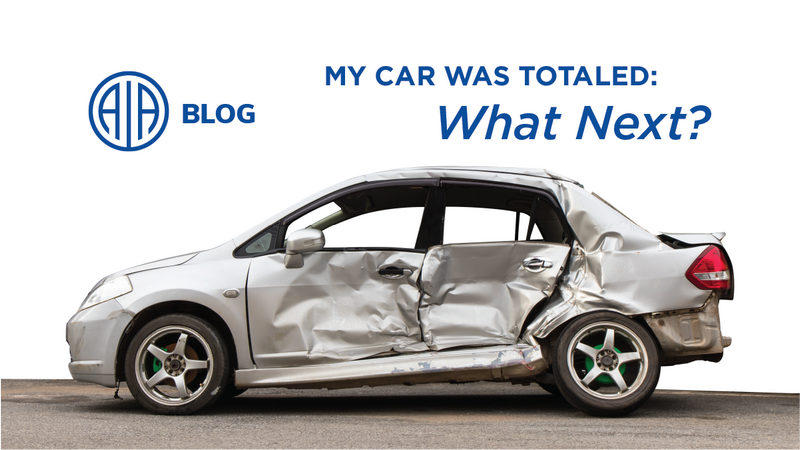
In some cases, insurance companies may also offer the option of keeping the totaled car and receiving a lower payout. This allows the insured person to salvage any usable parts or sell the car to a salvage yard.
Once the compensation amount is determined, the insurance company will issue a check to the insured person. This amount can then be used to either repair the car, purchase a new car, or cover any other expenses related to the accident.
| Assessing damage | Determining the extent of the damage to the car after an accident |
| Evaluating value | Calculating the actual cash value of the car before the accident |
| Compensation | Determining and issuing the compensation amount to the insured person |
Insurance Policies for Totaled Cars
When a car is considered totaled, it is important to understand what happens next. Insurance policies for totaled cars vary depending on the specific terms of the policy and the insurance provider. Here are a few options that may apply:
- Total Loss Payment: In some cases, the insurance company will provide a total loss payment to the policyholder. This is typically the actual cash value of the car at the time of the accident, minus the deductible.
- Replacement Cost Coverage: If the policy includes replacement cost coverage, the insurance company may provide funds to replace the totaled car with a new one of similar make and model. This coverage may have certain limitations and requirements.
- Salvage Title: If the insurance company determines that the car is salvageable, they may issue a salvage title. This means that the car can be repaired and put back on the road. However, a salvage title generally reduces the value of the car.
- Vehicle Buyback: In some cases, the insurance company may offer to buy back the totaled car from the policyholder. The insurance company will typically deduct the salvage value of the car from the total loss payment.
- Gap Insurance: If the policyholder has gap insurance, it may cover the difference between the actual cash value of the totaled car and the remaining balance on any outstanding loans or leases.
It is important for policyholders to review their insurance policies and understand the specific coverage provided for totaled cars. Additionally, it can be helpful to consult with the insurance company and ask any questions about the claims process and available options.
Options for Repairing a Totaled Car
If your car is considered totaled, you may be wondering what options you have for the next steps. Depending on the extent of the damage and the value of the car, you may have a few different options to consider.
1. Repairing the car: In some cases, it may be possible to repair a totaled car. This option is typically only viable if the damage is not extensive and the cost of repairs is less than the value of the car. It’s important to keep in mind that even with repairs, the car may still have a salvage title, which could affect its resale value.
2. Selling the car for parts: If the cost of repairs is too high or the car is deemed unsafe to drive, you may choose to sell it for parts. Salvage yards and auto recyclers may be interested in purchasing the car to salvage usable parts. This can be a way to recoup some of the value of the car.
3. Selling the car as-is: Another option is to sell the car as-is, without making any repairs. This can be a good choice if you don’t have the means or desire to repair the car yourself. You may be able to find a buyer who is interested in purchasing the car for its salvage value or for parts.
4. Total loss settlement: If the damage to your car is severe and the cost of repairs exceeds its value, you may receive a total loss settlement from your insurance company. This means they will pay you the actual cash value of the car, minus your deductible. You can then use this money to purchase a new car.
5. Donating the car: If the car is not worth much and you don’t want the hassle of selling it, you could consider donating it to a charity. Some organizations accept donated cars and will use the proceeds from selling the vehicle to fund their programs.
Overall, the options for repairing a totaled car depend on the extent of the damage and the value of the car. It’s important to carefully consider each option and weigh the costs and benefits before making a decision.
Dealing with a Salvage Title
When a car is considered totaled and you receive a salvage title, it means that the cost of repairs exceeds the value of the vehicle. A salvage title is issued by the insurance company to indicate that the car has been deemed a total loss.
Having a salvage title for a car can affect its future resale value, as it is considered a vehicle that has been significantly damaged and repaired. Additionally, insurance companies may be hesitant to provide coverage for a vehicle with a salvage title.
If you have a car with a salvage title, it is important to assess the extent of the damage and the repairs that have been made. You should also keep in mind that certain states have different regulations regarding salvage titles, so it is necessary to understand the specific requirements and restrictions in your area.
When dealing with a salvage title, it may be necessary to obtain a rebuilt title or a reconstructed vehicle inspection, depending on your location. This involves bringing the car to a designated inspection facility to determine if it has been properly repaired and is safe to be on the road.
If the car passes the inspection, you can then apply for a rebuilt title, which replaces the salvage title and allows you to legally drive and insure the vehicle. However, it is important to note that even with a rebuilt title, the car’s value may still be lower compared to a similar vehicle with a clean title.
It is crucial to thoroughly research and consider the potential issues and limitations that come with owning a car with a salvage title. Consulting with a professional, such as a mechanic or an insurance agent, can help you make informed decisions and understand the best course of action.
In summary, dealing with a salvage title involves understanding the implications it may have on the car’s value and insurability. Taking the necessary steps to obtain a rebuilt title or a reconstruction inspection can allow you to legally drive and insure the vehicle, but it is important to be aware of the potential limitations and issues that may arise.
Selling a Totaled Car
When a car is considered totaled, what comes next? One option is to sell the car, even though it may have significant damage.
Selling a totaled car can be a challenge, as many buyers may not be interested in purchasing a vehicle with extensive damage. However, there are still options available.
One option is to sell the car to a salvage yard or scrap metal dealer. These businesses may be willing to purchase the car for its parts or to recycle the metal. While this may not yield a high price, it can be a way to recoup some of the losses from the totaled car.
Another option is to sell the car as-is to a private buyer. While this may require some negotiation and the price may be lower than a car in good condition, there are individuals who may be interested in buying a totaled car for various reasons – such as using it for spare parts or attempting to repair it themselves.
Before selling a totaled car, it’s important to gather all relevant documents and provide a detailed description of the damage. This can help potential buyers make an informed decision. It may also be necessary to obtain a salvage title or other documentation required by local regulations.
Overall, selling a totaled car may not be as straightforward as selling one in good condition, but with the right approach and patience, it is possible to find a buyer and recoup some of the losses.
| Possible to recoup some losses | May be challenging to find a buyer |
| Options to sell to salvage yard or private buyer | Price may be lower than a car in good condition |
| Potential for buyers looking for spare parts or project cars | May require extra paperwork |
Getting a New Car after a Totaled Car
When a car is considered totaled, it means that the cost to repair the car exceeds its actual cash value. So, what happens next? Well, if you find yourself in this unfortunate situation, you will need to start thinking about getting a new car.
First and foremost, you should contact your insurance company to file a claim for the totaled car. They will assess the damage and determine the actual cash value of your car. Once the claim is settled, you will receive a payout from the insurance company.
With the payout in hand, you can start looking for a new car. It is important to consider what you liked and disliked about your totaled car when making a decision about your next car. Maybe there were certain features that you loved, or perhaps there were areas where you felt the car was lacking. Use this opportunity to find a car that meets all your needs and preferences.
Next, you will need to decide if you want to buy a new car or a used car. Buying a new car can be exciting, as you will have the opportunity to choose the make, model, and features that you desire. However, new cars tend to be more expensive than used cars. On the other hand, buying a used car can save you money, but you may not have as many options to choose from.
Once you have made a decision, you can start researching and visiting car dealerships, browsing online listings, or working with a car broker to find the right car for you. Take your time to test drive different cars, compare prices, and negotiate the best deal possible.
When you have found the perfect car, it is important to have it inspected by a trusted mechanic to ensure that it is in good condition. This step is crucial, especially when buying a used car, as it can help you avoid any future issues or unexpected expenses.
Lastly, be sure to transfer the insurance coverage from your totaled car to your new car. You can contact your insurance company to update your policy and provide them with the necessary information about your new vehicle.
Getting a new car after a totaled car can be a daunting task, but it is also an opportunity to find a car that better suits your needs and preferences. By following these steps, you can navigate the process smoothly and confidently.
Financial Implications of a Totaled Car
When a car is considered totaled, it means that the cost of repairs exceeds the actual value of the vehicle. This is typically determined by the insurance company after a thorough assessment of the damage. Once a car is deemed totaled, the next step is to work with the insurance company to determine the next course of action.
If you have comprehensive coverage, your insurance company will generally offer you a payout based on the actual cash value of the car before it was totaled. This amount may not be enough to cover the cost of a new vehicle, especially if you had an older car or a car that had depreciated significantly. As a result, you may find yourself having to come up with additional funds to purchase a replacement vehicle.
Alternatively, you can choose to keep the totaled car and receive a reduced payout from the insurance company. In this case, the insurance company will deduct the salvage value of the car from your payout. You can then use the remaining funds, along with any potential repairs, to restore the car to roadworthy condition. However, it’s important to note that a car that has been declared totaled may have a salvage title, which can affect its resale value in the future.
Another financial implication of a totaled car is the impact it can have on your insurance premiums. If you were at fault in the accident that caused the car to be totaled, your insurance rates may increase. Additionally, if you choose to purchase a replacement vehicle, you may also face higher premiums. It’s important to factor in these potential costs when deciding on the best course of action after your car is totaled.
In conclusion, when a car is totaled, it can have significant financial implications. It’s important to carefully consider your options and work with your insurance company to determine the best course of action for your specific situation.
Question-answer:
How is a car considered totaled?
A car is considered totaled when the cost of repairs exceeds a certain percentage of the car’s actual cash value. This percentage varies by insurance company and state, but it is typically around 70-80%.
What happens when a car is deemed totaled?
When a car is deemed totaled, the insurance company will usually provide the car owner with a cash settlement based on the car’s actual cash value minus the deductible. The car will then be taken to a salvage yard where it may be sold for scrap or auctioned off.
Can I still drive a car that has been totaled?
If a car has been deemed totaled, it is generally not safe or legal to drive it. The car will have a salvage title, which means it has been declared a total loss by an insurance company. Driving a car with a salvage title may lead to fines or other legal consequences.
Can I keep my car if it is totaled?
In many cases, you have the option to keep your totaled car after the insurance company settles your claim. However, the insurance company will deduct the car’s salvage value from your settlement amount. If you decide to keep the car, you will need to repair it to make it roadworthy and may need to get a rebuilt title.
What is a salvage title?
A salvage title is a form of vehicle title branding that signifies the car has been previously declared a total loss by an insurance company. It indicates that the car has been damaged extensively and may require significant repairs to be roadworthy again. Cars with salvage titles may have reduced resale value.
